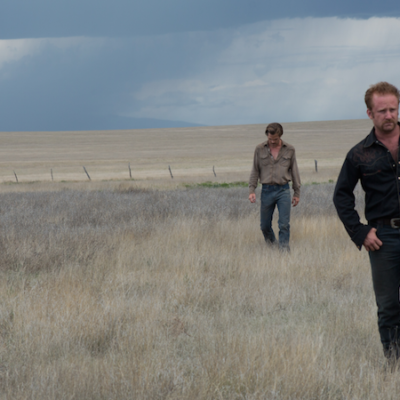It's surprising to think that Manchester by the Sea is only acclaimed filmmaker, screenwriter and playwright Kenneth Lonergan's third feature as director. Since his beloved 2000 debut You Can Count on Me, Lonergan has hardly been prolific, but he can still be relief upon to deliver rich, mature, and thoughtful dramas with the kind of emotional resonance that other filmmakers can only hope for.
Manchester by the Sea is a complex drama that flits between the past and present, creating a detailed before-and-after of lives struck by grief and trauma. Casey Affleck stars as Lee Chandler, a reserved and rather prickly janitor who lives and works in Quincy, Massachusetts. When a family tragedy strikes, he finds himself in nearby Manchester, faced with the idea of being a caregiver, and must confront a terrible event in his past that has shattered any parental instinct he may once have had.
The film is slow and pensive, very gradually filling the audience in on the details of events that start off as inner sanctum whispers and speculation from outside of Lee's family. Unlike many other films that rely on constant switching between past and present, the audience never feels frustration when they are plucked from one place and time to another at the mercy of of the narrative. Every shift feels organic and wholly part of the same flowing story.
Manchester by the Sea isn't just an emotional film - it's a film about emotion; about memory, repressed feelings, hidden burdens, regrets, guilt. As such, it is very much an actor's film, and the cast are superb. Casey Affleck overcomes his usual mumbly persona and makes Lee's rage feel real and visceral and often disturbing. He's a complex and not always likeable character, but he remains sympathetic. Lucas Hedges as his sixteen-year-old nephew Patrick is also marvellous, finding the unstable middle ground between teenage bravado and intruding sadness and doubt that debilitates him in spite of his apparent assuredness.
The absolute standout of the cast, though, is Michelle Williams as Lee's ex-wife Randi. Regrettably, she has the least screen time of any major character, but when she is on-screen the always brilliant Williams reaches new levels of disquieting realism. A scene between Randi and Lee near the film's end is worth the price of admission alone, feeling nearly voyeuristic in its heartbreaking honesty and its ironically very eloquent portrayal of disconnection and fumbling reconciliation.
Smart, enthralling, and deeply rewarding with the right patience, Manchester by the Sea recalls the kind of heart-on-sleeve indie films that had their heyday in the early 2000s, but never feels anything less than current and modern. The film is a reminder that there are still new facets of the human condition to explore, and does it with the kind of elegance and restraint that all good drama films need.
Manchester by the Sea is open in Australian cinemas now.




